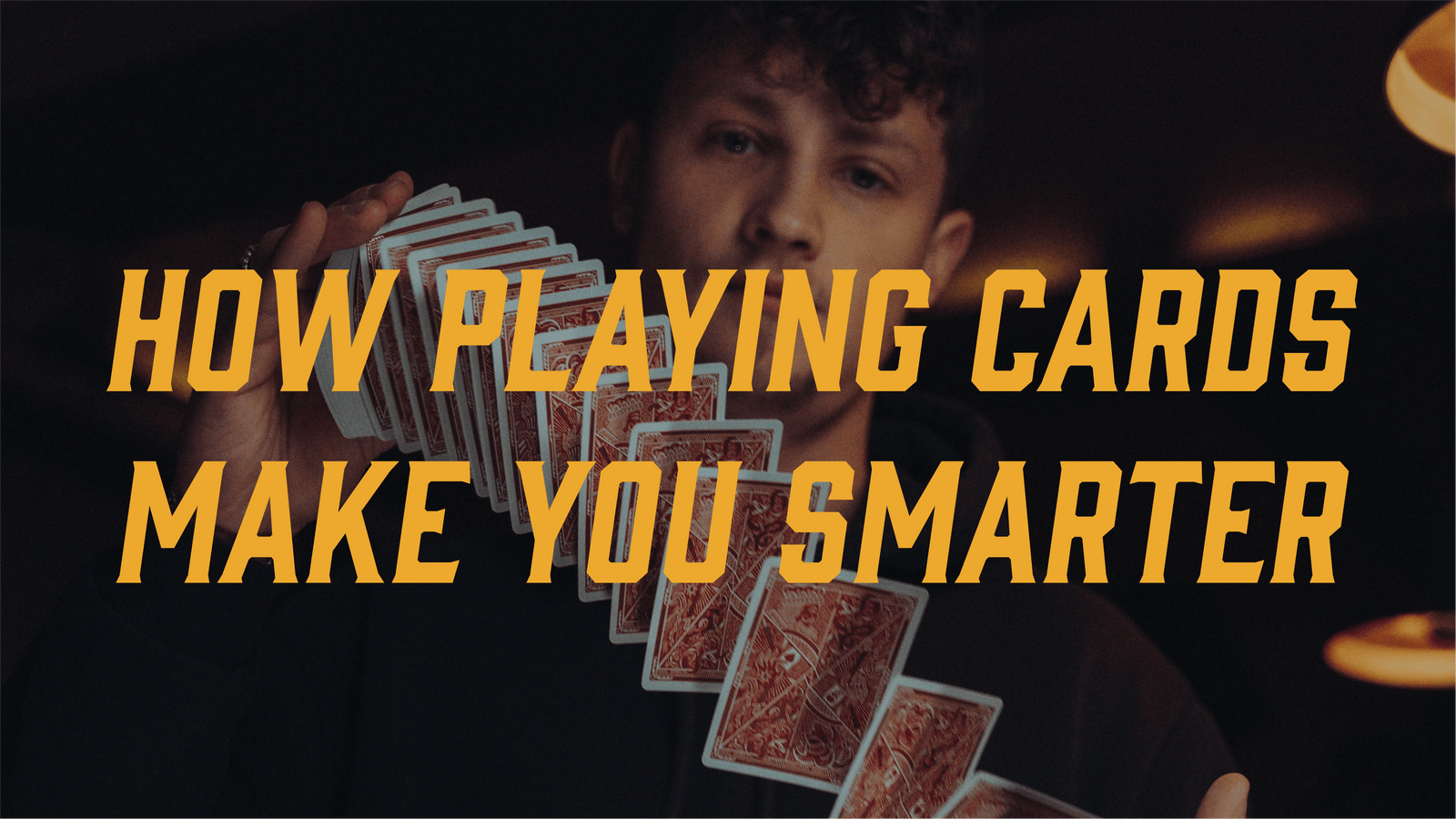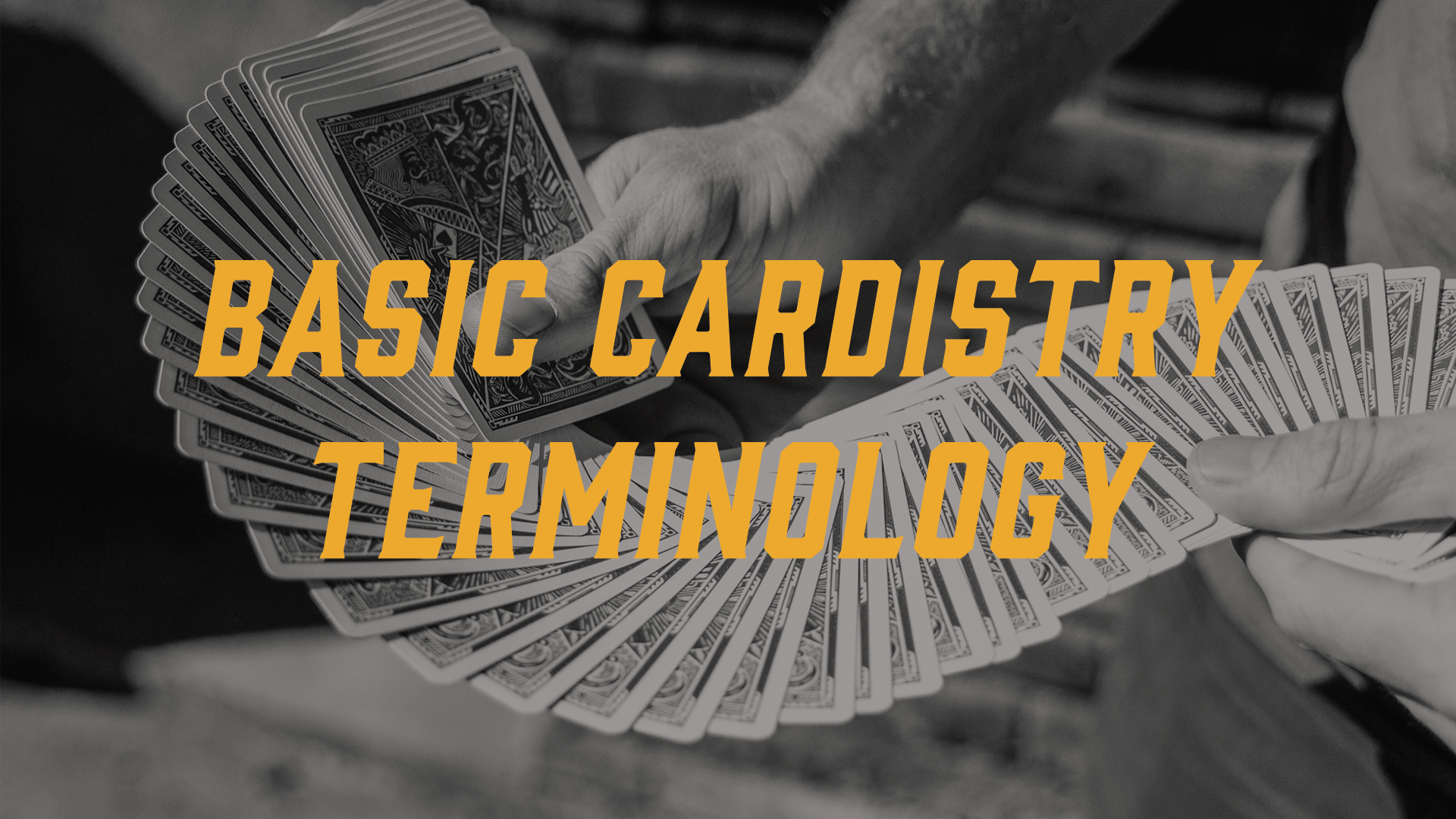Get Smarter - How Playing Cards Can Help Your Brain

Playing cards have been a source of entertainment and amusement for generations. From casual games with friends to intense competitions, card games have a universal appeal. But did you know that these simple decks of cards can do much more than provide fun?
Let’s find out how playing cards can help your brain in surprising ways. Whether you're young or young at heart, engaging in card games can offer a plethora of cognitive benefits that contribute to your overall mental fitness.
The Fascinating World of Playing Cards

Playing cards have a rich history that spans cultures and centuries. They have been used for various purposes, from fortune-telling to strategic military planning. Different types of playing cards, such as standard decks and specialized sets, have emerged over time, each with its own unique features and uses. Card games have evolved from their origins, adapting to different cultural contexts and providing entertainment to people around the world.
Cognitive Benefits of Playing Cards
1. Enhanced Memory and Recall
Playing cards can be a fantastic exercise for your memory. Card games often require you to remember the positions of cards, the sequence of moves, and the rules of the game. Games like Concentration, where players match pairs of cards, challenge your memory and encourage you to improve your recall abilities. By engaging in such games regularly, you can give your memory a meaningful workout that extends beyond the gaming table.
2. Improved Cognitive Skills

Card games demand more than just remembering card values; they stimulate various cognitive functions. Analytical thinking and strategic planning come into play when deciding which cards to play and predicting opponents' moves. Decision-making skills are honed as you evaluate your options and potential outcomes. Additionally, card games encourage flexibility and adaptability, as you may need to adjust your strategies based on changing circumstances.
3. Sharpened Problem-Solving Abilities
Complex card games, such as Bridge or Poker, require intricate problem-solving skills. These games involve analyzing different factors, making predictions, and adjusting strategies based on limited information. Through repeated exposure to such scenarios, your brain becomes more adept at tackling complex problems and devising creative solutions.

4. Social Interaction and Emotional Intelligence
Card games often involve social interactions, whether you're playing with friends, family members, or new acquaintances. Engaging in multiplayer card games fosters social bonds and enhances your emotional intelligence. Understanding opponents' behaviors, managing your emotions, and practicing empathy contribute to your overall interpersonal skills. These qualities extend beyond the card game context, positively influencing your interactions in various real-life situations.
Card Games for Different Cognitive Goals
1. Boosting Concentration and Focus

Certain card games demand sustained attention and concentration. Games like Solitaire require you to maintain focus as you plan and execute moves. By engaging in these games, you can train your brain to concentrate better over time, potentially improving your ability to stay focused on tasks in your daily life.
2. Stress Relief and Relaxation
Card games can also serve as a form of mindfulness and stress relief. Engaging in a game of cards allows you to step away from the pressures of everyday life and immerse yourself in an enjoyable activity. The rhythmic shuffling of cards and the strategic thinking involved can create a calming effect, helping you unwind and reduce stress.
3. Brain Fitness for All Ages
Card games are versatile and suitable for individuals of all ages. From young children learning basic math concepts through games like Go Fish to seniors keeping their minds active with Bridge, card games offer a broad spectrum of cognitive benefits. The accessibility and adaptability of card games make them a valuable tool for lifelong brain engagement.
Recommended Card Games for Cognitive Enhancement
1. Solo Games
Solitaire: A classic solo card game that challenges your problem-solving skills. As you try to arrange cards in specific sequences, you exercise your logical thinking and patience. The game's varying levels of difficulty ensure a continuous mental challenge.
2. Multiplayer Games
Bridge: A team-based card game that demands strategic planning and communication. Working together with your partner to outwit the opposing team sharpens your collaborative and analytical abilities.
Poker: Beyond its reputation as a game of chance, Poker involves psychological tactics and reading opponents. Mastering the art of bluffing and making calculated decisions enhances your decision-making and emotional intelligence.
Uno: A family-friendly card game that promotes quick thinking and decision-making. Uno encourages players to adapt to changing game dynamics, fostering flexibility and strategic thinking.
Incorporating Card Games into Your Routine

1. Creating a Card Game Schedule for Brain Health
Integrating card games into your daily routine can be a fun and effective way to maintain your brain health. Set aside dedicated time for playing card games, whether it's during breaks or evenings, to ensure consistent cognitive engagement.
2. Organizing Card Game Nights with Friends and Family
Gather your loved ones for regular card game nights. Multiplayer games not only provide cognitive benefits but also create opportunities for social interaction and bonding. Rotate through different games to keep the experience fresh and engaging.
3. Utilizing Card Games as Cognitive Exercises for Seniors
Card games can be especially beneficial for seniors looking to keep their minds active. Engaging in regular card game sessions can help maintain cognitive function, provide social connections, and offer a sense of accomplishment.
The Bottomline
In a world dominated by digital entertainment, the timeless appeal of playing cards remains strong. Beyond their entertainment value, card games offer a myriad of cognitive benefits that can enhance memory, boost cognitive skills, sharpen problem-solving abilities, and promote social interaction.
By incorporating card games into your routine and exploring different types of games, you can tap into these cognitive advantages and give your brain a meaningful workout. That’s how playing cards can help your brain.
So, the next time you gather around a table with a deck of cards, remember that you're not just playing a game - you're investing in your brain's well-being and cognitive prowess.







Leave a comment